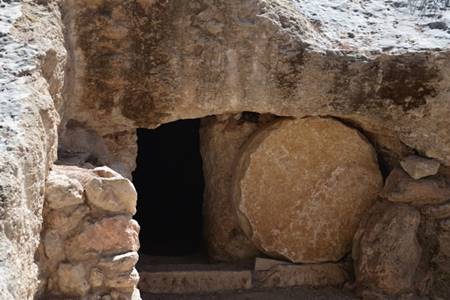 (Vatican News) At the Wednesday General Audience, Pope Leo XIV highlights that Christ’s Resurrection can bring direction to our daily lives, fulfill our thirst for meaning, and transmit hope to the world.
(Vatican News) At the Wednesday General Audience, Pope Leo XIV highlights that Christ’s Resurrection can bring direction to our daily lives, fulfill our thirst for meaning, and transmit hope to the world.
“Even our time, marked by so many crosses, invokes the dawn of Paschal hope,” Pope Leo XIV said during the Wednesday General Audience on November 5, in St. Peter’s Square.
In his catechesis, the Pope reflected on Christ’ Resurrection as “not an idea, not a theory, but the Event that is the foundation of faith.”
He emphasized that truly believing in the Resurrection in our daily life means revolutionizing how we live. This transformation can then help change “the world with the gentle and courageous power of Christian hope.”
“We can be His witnesses even where human history does not see light on the horizon,” urged the Pope. “Paschal hope does not disappoint.”
Lodestar in our chaotic lives
The Pope highlighted how in Christ’s Resurrection “we find an answer to our thirst for meaning,” especially when facing situations that seem unintelligible.
“In Him, we have the assurance of always being able to find the lodestar towards which we can direct our seemingly chaotic lives, marked by events that often appear confusing, unacceptable, and incomprehensible: evil in its many forms, suffering, death, and events that affect each and every one of us,” he said.
“Faced with our fragile humanity,” Pope Leo XIV continued, Christ’s Resurrection “becomes care and healing, nourishing hope in the face of the frightening challenges that life presents us with every day on a personal and global level.”
He explained how, “in the perspective of Easter,” the Way of the Cross becomes the Way of the Light. He urged the faithful “to savour and meditate on the joy after the pain, to retrace in the new light all the stages that preceded the Resurrection.”
The Pope underlined how Jesus presents Himself in the Book of Revelation (1:17) as “the Living One” to show that His Resurrection is a current fact, visible in the daily life of every person.
Resurrection is not a distant event from the past
Christ’s Easter “is an event that does not belong to a distant past, now settled into tradition like so many other episodes in human history,” the Pope insisted. He noted that the Church teaches the need to make a “living remembrance” of the Resurrection by celebrating Easter every year and the Eucharist every day.
“The Paschal Mystery is the cornerstone of Christian life, around which all other events revolve,” he said, adding that “we can say, then, without any irenicism or sentimentality, that every day is Easter.”
“Hour by hour, we have so many different experiences: pain, suffering, and sadness intertwined with joy, wonder, and serenity. But through every situation, the human heart longs for fullness, a profound happiness,” the Pope explained.
To clarify this concept, he quoted St. Teresa Benedicta of the Cross (St. Edith Stein), who “delved deeply into the mystery of the human person," pointing out that “dynamism” comes from “the constant search for fulfillment.”
She wrote that the human person “always longs to have being given to us anew, so that we can draw on what the moment gives us and at the same time takes away from us.”
“We are immersed in limitation, but we also strive to surpass it,” the Pope said.
Resurrection is the most beautiful news
Faced with this reality of human nature, “the Paschal proclamation is the most beautiful, joyful, and overwhelming news that has ever resounded in all of history,” the Pope continued.
“It is the quintessential ‘Gospel,’ which attests to the victory of love over sin and of life over death, and this is why it is the only thing capable of satisfying the demand for meaning that troubles our minds and our hearts.”
Human beings are constantly “striving towards a beyond that continually attracts them,” Pope Leo highlighted. “No contingent reality satisfies us. We tend towards the infinite and the eternal.”
However, he underlined, “this contrasts with the experience of death, anticipated by suffering, loss, and failure,” quoting St. Francis, who said in the Canticle of the Sun that “no living man can escape” from it.
In conclusion, the Pope emphasized that the Resurrection changed the course of human history.
When the women went “to the tomb to anoint the body of the Lord,” after His crucifixion, and found it empty, he said, they met instead “the mysterious youth dressed in white,” who told them: "You seek Jesus of Nazareth, who was crucified. He has risen; He is not here" (Mk 16:6).
Source: Pope at Audience: Christ's Resurrection brings hope to darkness of human history